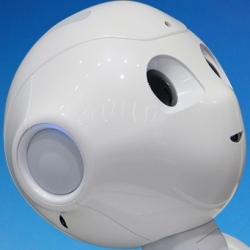
While some robots may be out to take our jobs, there’s a big skills gap in the AI-fueled services industry just waiting to be filled There will be two major drivers around the jobs of the future. The first will be what can be automated, and the second will be what level of comfort do we have for things being automated.
However, far from the widespread fear that automation and artificial intelligence (AI) will make human workers redundant, it seems people are becoming more comfortable with the idea of automation and AI in the workplace every day. Recent research conducted by Adecco Group reveals that many employees feel AI will have a positive impact in creating a future workplace with a myriad of opportunities for more flexible, rewarding work.
So if our current roles in the workplace are set to be replaced, what will we be doing instead? Here are five new jobs that are likely to see the light as a result of AI:
1. Robot Teacher
Robots are to be deployed everywhere from the classroom to hospitals, but who will ‘teach’ this new wave of bots the skills they are meant to apply so effortlessly, and, more importantly, who will teach robots how to teach each other so that AI can continue to scale? While robotic programming automation (RPA) requires an intensive focus on programming repeatable tasks, AI is here to provide structured outputs from unstructured inputs. Teacher training is about to take on a whole new meaning.
2. AI Lawyer
In the UK and Europe, regulations are being drafted to govern the use and creation of robots and AI. This includes an ‘electronic personhood’ status assigned to address the rights and responsibilities, and indeed all acts carried out by AI-programmed robots. What does it mean? Well, in short it means that governments are waking up to the fact that AIs can cause real damage to people. It also means that robots, along with their owners and creators may be sued if AIs cause harm to people.
Regardless of the form electronic personhood laws go on to take, it’s safe to say that there will be a new generation of legal professionals dedicated to the subject, as well as expert law makers.
3. Head of Robotic and Human Orchestration
Doing business today is not a case of choosing between human or machine. We’ve reached an age of human and machine. Orchestration will be key in implementing the right technologies, or the right people, for the job. The variable now is how the division of labor will be managed.
Orchestration is already in place on the assembly line. For example, we have beautifully orchestrated factories with a mixture of human and robot workers. Orchestration of service delivery is another entirely different matter, however. Robotic service orchestration (RSO) platforms are already in place in more advanced shared services centers, and as the requirement for more orchestration between automation, humans and AI grows, so will the requirements for experts in this field.
4. Head of Transformation
There are a million different companies and technology-driven solutions that all claim to make digital transformation happen quickly and seamlessly, but with the convergence of AI and big data, data scientists will be able to extract business changing information on a daily basis.
It won’t be the robots making the actual business critical decisions, though. These will no doubt be left up to an expert in a pivotal ‘change’ role. While not a new role, the Head of Transformation will now need new experience and skills from previous roles involving automation, product and process simplification, and service excellence.
5. Autonomous Vehicle Fleet Managers
Over the next few years, there will be a seismic shift in the automotive industry, delivering the power of the AI and IoT to vehicles. Vehicles will be synced to more content-aware, location-based apps which will enable cars within the same pool to communicate and share data, such as road conditions or speed. Vehicles will also be able to tap into AI to learn routes and routines, and even upgrade on the move.
This shift will see the widespread adoption of autonomous vehicles. While cars may be able to navigate themselves, a person (or an Autonomous Vehicle Fleet Manager) will still need to be positioned in case of any anomalies as fleets go through various stages to become fully automated, and of course to be the human representative that interacts as passenger and customer requests.
Amid the doom and gloom ‘robots will steal our jobs’ messaging that circulated frequently over the past year, it’s uplifting to see a considerable percentage of people can see the silver lining in the automation and AI situation we find ourselves in. While robots will render some occupations obsolete, there is a huge opportunity here for humans and robots to become more collaborative and create a new services based industry catered to nurturing our newfound AI colleagues. It’s time to embrace it and get used to it, for you may find yourself working alongside a Robot Teacher sooner than you think.
